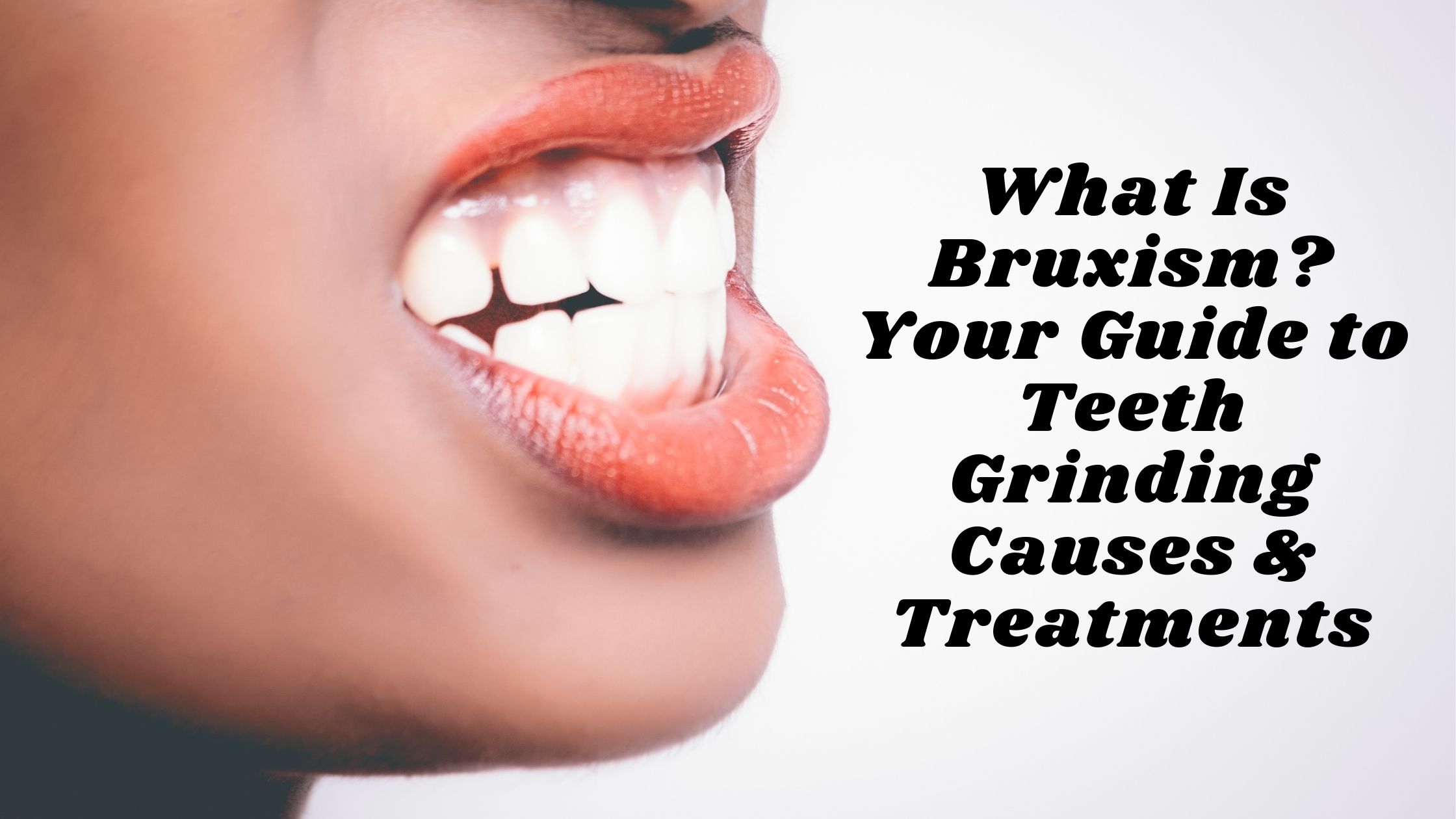What are the Top Causes of Teeth Grinding & Jaw Clenching?
While you may knowingly grit your teeth when your favorite team loses, others may experience a more involuntary and often repeated habit of teeth grinding and jaw clenching known as Bruxism. This condition causes major wear and tear to an estimated 10% of people’s pearly whites, and while there’s generally no single cause for this condition, stress, lifestyle habits, medications, and sleeping conditions are major contributors. In other cases, excessive alcohol, caffeine, and/or psychoactive substance consumption can increase a person’s chance of developing this involuntary grinding. Whichever the cause, one thing is for sure Bruxism poses a significant problem for your teeth’ enamel, jaw, and facial tensions, and the effects can certainly be uncomfortable.
Bruxism & Sleep Disorders 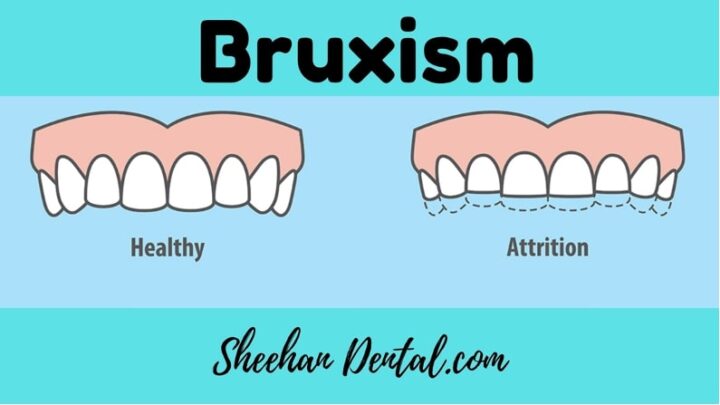
While Bruxism can occur while you’re awake oftentimes, we tend to release daily emotional stress during the night, and as a response to poor sleeping patterns, our body triggers muscle hyperactivity that can cause our teeth to grind in multiple periods throughout the night– this is referred to as sleep bruxism. Other studies note that there is a high percentage of patients who experience sleeping disorders like obstructive sleep apnea (OSA), an involuntary obstruction of breathing in conjunction with sleep-related Bruxism.
Although it remains unclear whether this is simply causation or correlation, this poses a particular problem, as people are usually unaware of this repeated damage throughout the night and thus may go untreated for years. The most common visual sign of compulsory teeth clenching is sharp teeth edges, as they are a huge giveaway that you’ve been chipping away your teeth.
The Relationship Between Anxiety and Bruxism Conditions
Bruxism is triggered by people who have a hard time dealing with emotional and physical stressors and may have repeated nervous tensions. Physical and emotional stressors disturb our physical and mental equilibrium resulting in the feeling of frustration, anger, fear, and tension, which can cause people to start showing the initial stages of Bruxism as well as affect the frequency and severity of the condition.
Negative life events such as divorce, loss, bullying, excessive worrying can lead to utilizing Bruxism as a coping mechanism; however, reducing exposure to stressful situations can help minimize the intensity of the condition.
Potential Oral Health Hazards of Teeth Grinding & Jaw Clenching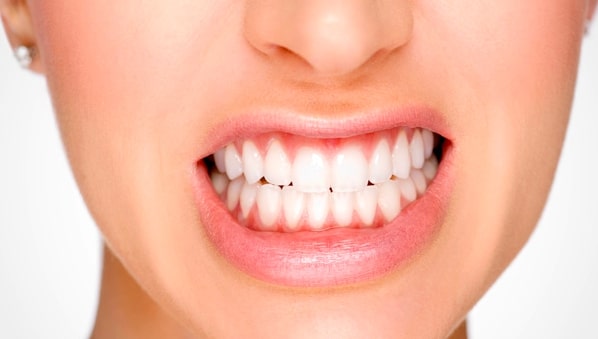
Bruxism can have far-reaching symptoms, while the more common symptoms include jaw soreness, dull headaches, and painful, loose, or fractured teeth; it’s also important to consider gum recession and inflammation due to the applied and repetitive pressure on the gingiva. Other more painful oral effects include loss of tooth structure and the excessive wear of the enamel, exposing the much more sensitive dentin below, resulting in tooth hypersensitivity and an increased risk of cavities.
Symptoms that you Might have Bruxism
Though teeth grinding is the main symptom of Bruxism, it can be hard to identify this disease by just grinding your teeth. Signs and symptoms of Bruxism may include:
- Flattened, fractured, chipped, or loose teeth.
- Worn tooth enamel.
- Increased tooth pain.
- Lucked or tight jaw
- Constant headaches
- Damage from chewing on the inside of your cheek
- Sleep disruption
Bruxism Diagnosis & Dental Treatment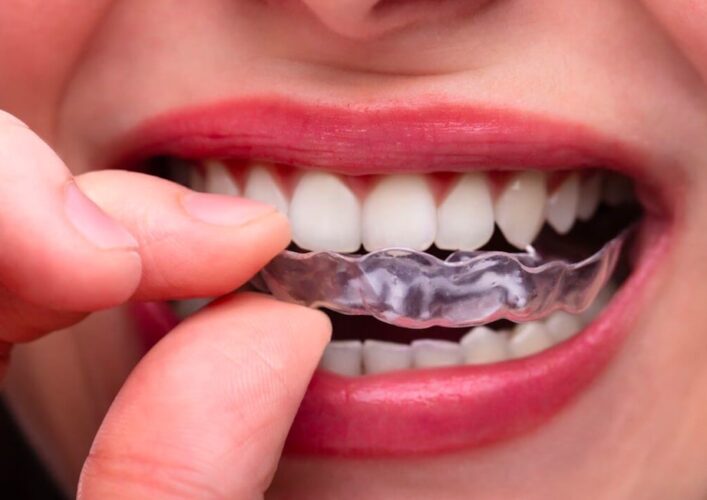
Don’t know if you’re a bruxiner? No fear, generally, we automatically examine a patient’s teeth for physical signs of teeth clenching and grinding during routine checkups, however, patients will usually begin to vocalize their pain and discomfort ahead of time as the condition persists.
In addition to your Sheehan Dental dentist, psychologists may also be able to link severe anxiety or stress to Bruxism.
Many times simply acknowledging that the problem is there and intentionally changing oral habits can be enough to minimize teeth grinding. However, there are various treatments to prevent permanent, irreversible damage to your teeth that we’ll discuss below.
Best Dental Treatments for Teeth Grinding Bruxism
While there’s not a one-stop solution for all your grinders out there. Here a couple of treatments that can help you curb the habit:
1.Dental Mouth Guard – Control Bruxism
While there is not a cure for Bruxism, we would recommend mouthguards or night guards to help limit overnight grinding and clenching and their associated consequences. Despite these protective devices covering the teeth to shield against potential damage, they do not stop the act of grinding but rather highly minimize the damage of this condition. Mouthguards can be easily obtained over the counter or be custom-made at Sheehan Dental!
2.Reductive Coronoplasty
Restore your bite to normal with reductive coroplast, which helps level out the surface of your teeth. This procedure can be helpful as the surface of your teeth become aligned; you may feel less tempted to compulsively grind.
3.Natural Remedies
While the above are efficient solutions, others may opt for more natural remedies, including stress management, Vitamin intake, CBD oil, massage therapy, or acupuncture to help reduce muscular tension and provide pain management and calm the nervous systems. Practicing tongue and jaw exercise also serves as a great way to relieve clenching and make the nightly grind less likely.
When to See a Dentist
You need to see your dentist if you have any of the symptoms that we mentioned before. If you notice that your or your family’s teeth are grinding or wearing down and are showing symptoms of Bruxism, then it is time to come into Sheehan Dental for a checkup and possible treatment.
Beat The Grind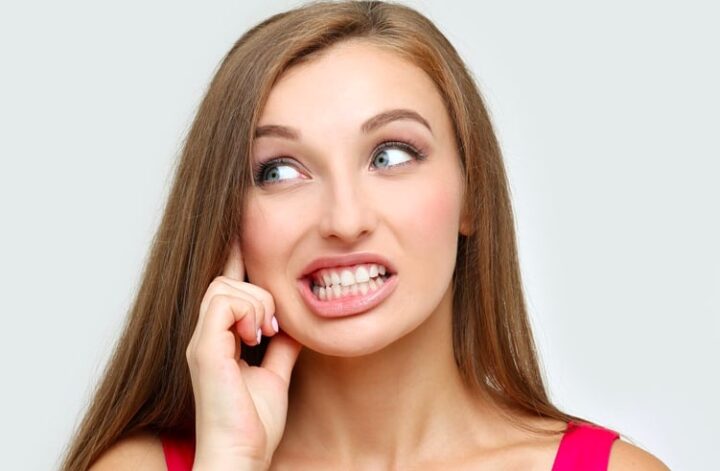
For nightly teeth grinders, it can be a hard habit to break, especially with an array of different causes, and researchers are continuing to grind towards finding new ways to help the clenching. But it’s important to make sure you’re catching it early and treating it to avoid significant dental complications. So remember to not miss a dental checkup and contact Sheehan Dental in Palos Park-Treatment for all things Bruxism & Teeth Grinding.

